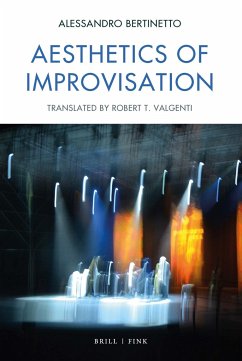This essay develops a theory of improvisation as practice of aesthetic sense-making. While considering all arts, references are made to many concrete cases. A topic in vogue since the XX. century, as evidenced by the great philosophers who were interested in it (Ryle, Derrida, Eco among others), improvisation, a felicitous mixture of habit and creativity, norm and freedom, is constitutive of human action. Human practices - including very well-regulated activities such as playing chess, piloting airplanes, or medicine - permit and often require it to varying degrees.Improvisation is also the true source of artistic experience. Consequently, the aesthetics of improvisation result in a philosophy of art: Art was born as improvisation. Yet improvisation has its own aesthetic dimension: that of a "grammar of contingency" in which notions such as emergence, presence, curiosity and authenticity explain the pleasures of joyful adventure and empathic involvement elicited by improvisation.
Bitte wählen Sie Ihr Anliegen aus.
Rechnungen
Retourenschein anfordern
Bestellstatus
Storno

